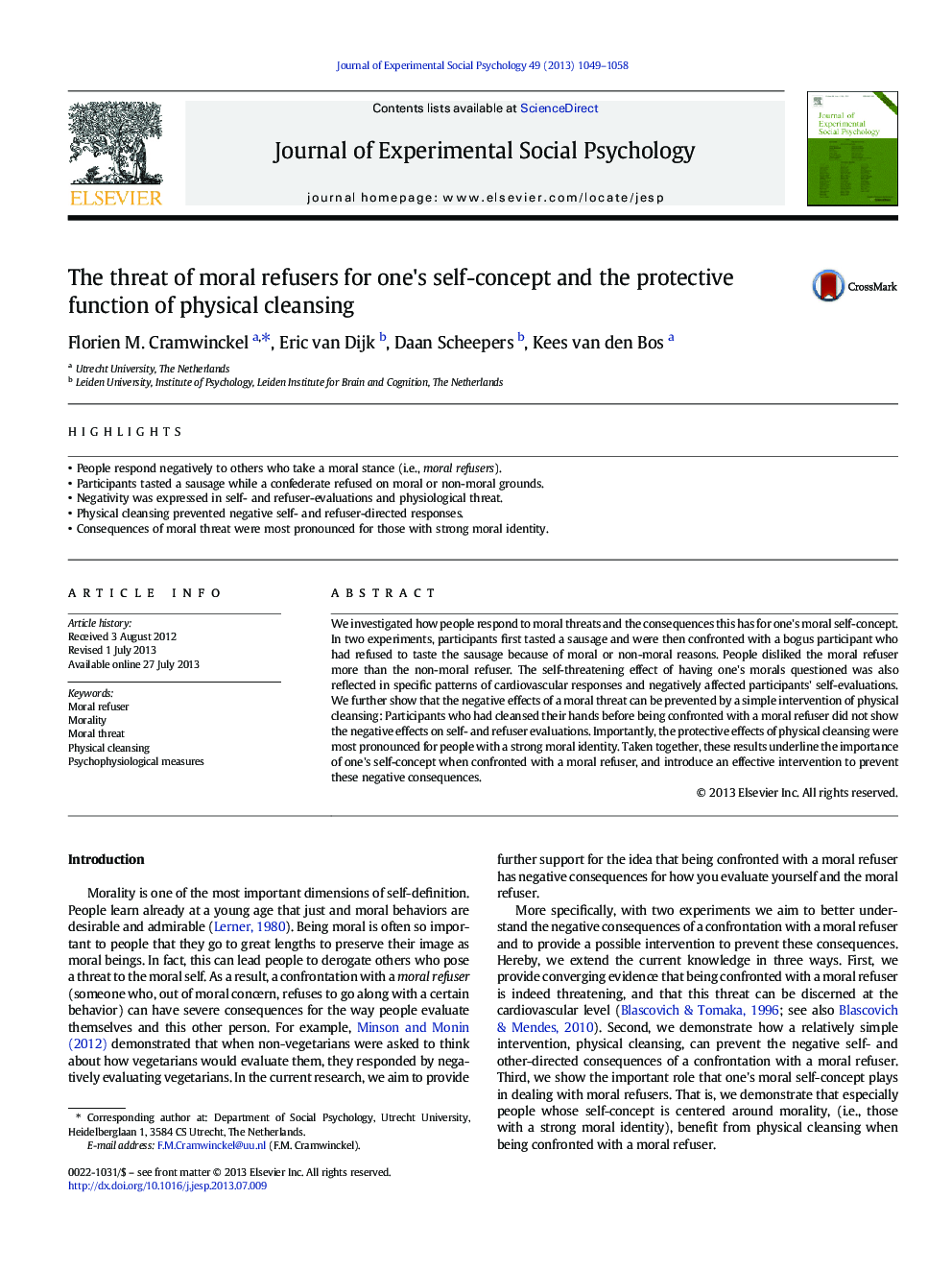| Article ID | Journal | Published Year | Pages | File Type |
|---|---|---|---|---|
| 10468545 | Journal of Experimental Social Psychology | 2013 | 10 Pages |
Abstract
We investigated how people respond to moral threats and the consequences this has for one's moral self-concept. In two experiments, participants first tasted a sausage and were then confronted with a bogus participant who had refused to taste the sausage because of moral or non-moral reasons. People disliked the moral refuser more than the non-moral refuser. The self-threatening effect of having one's morals questioned was also reflected in specific patterns of cardiovascular responses and negatively affected participants' self-evaluations. We further show that the negative effects of a moral threat can be prevented by a simple intervention of physical cleansing: Participants who had cleansed their hands before being confronted with a moral refuser did not show the negative effects on self- and refuser evaluations. Importantly, the protective effects of physical cleansing were most pronounced for people with a strong moral identity. Taken together, these results underline the importance of one's self-concept when confronted with a moral refuser, and introduce an effective intervention to prevent these negative consequences.
Keywords
Related Topics
Life Sciences
Neuroscience
Behavioral Neuroscience
Authors
Florien M. Cramwinckel, Eric van Dijk, Daan Scheepers, Kees van den Bos,
